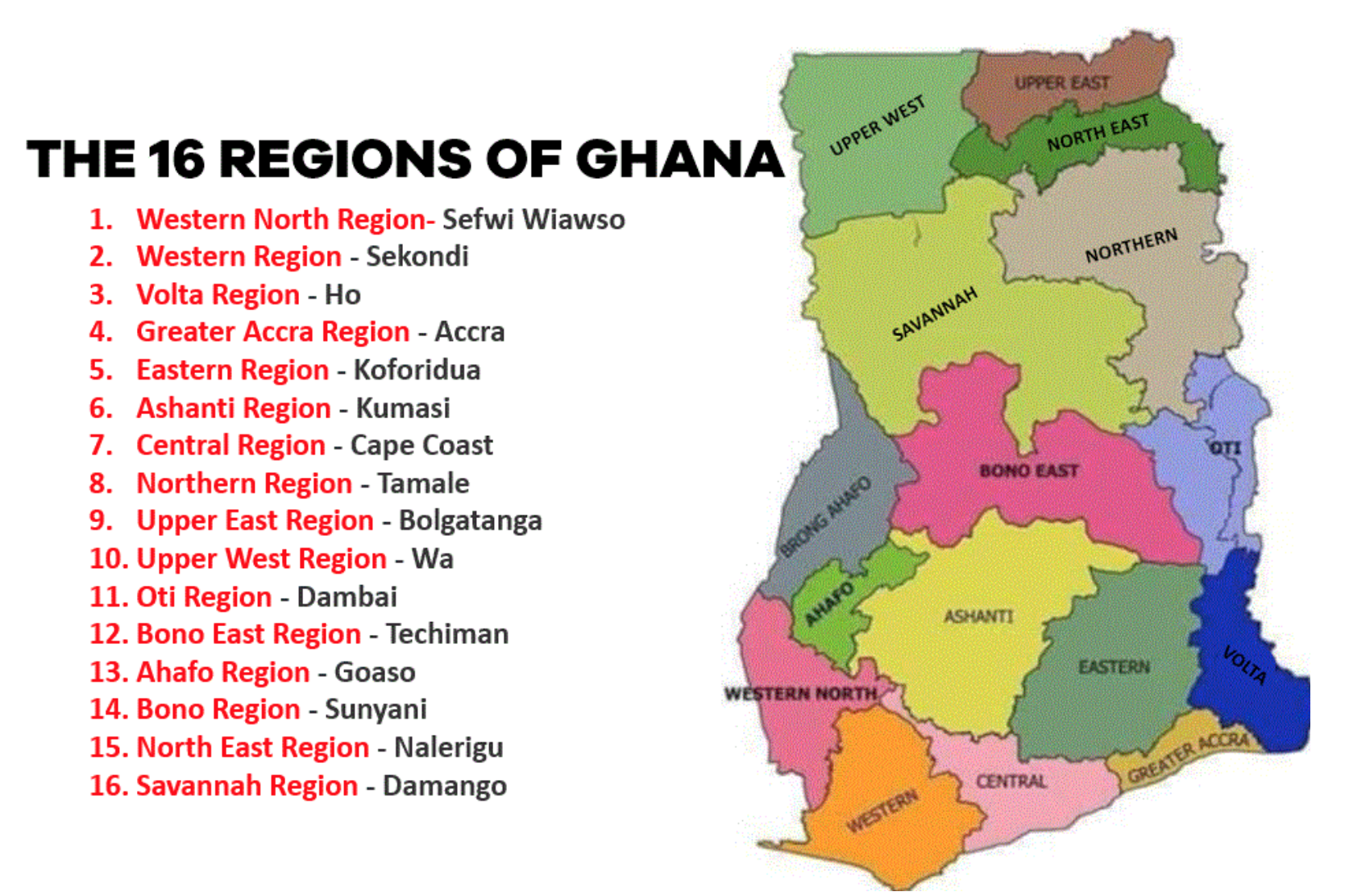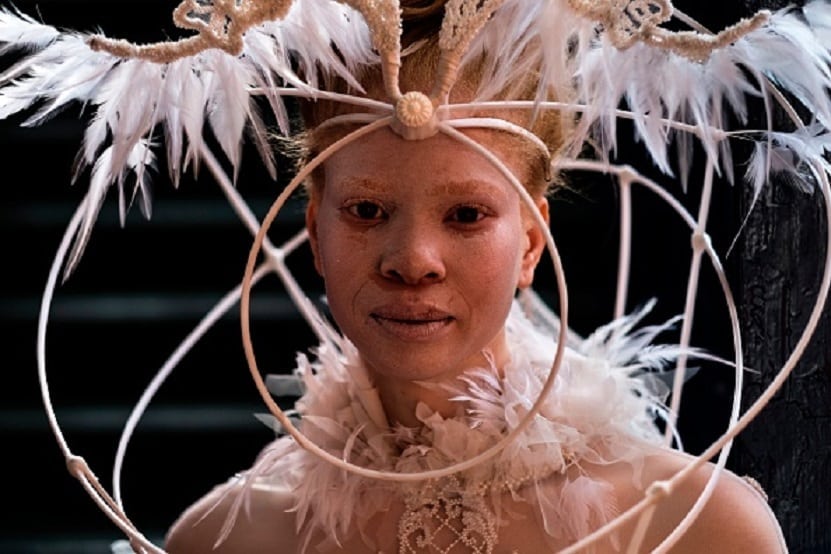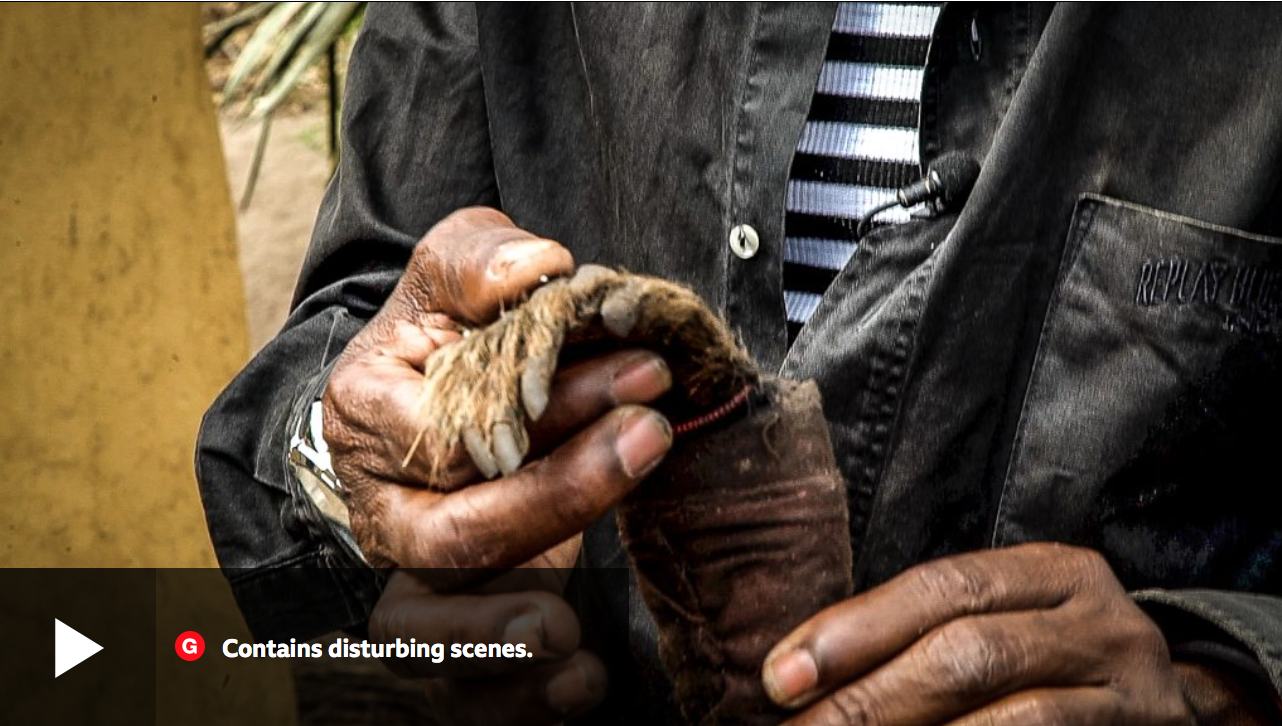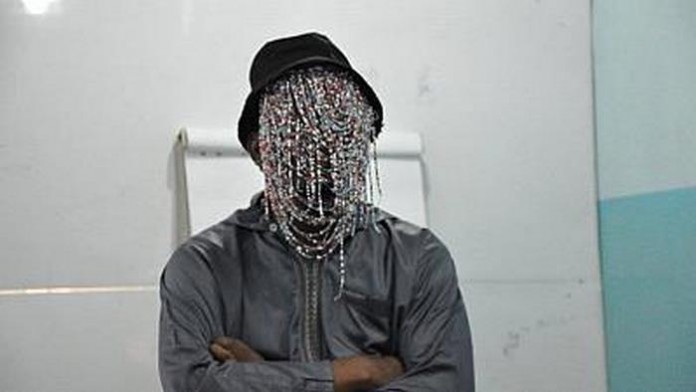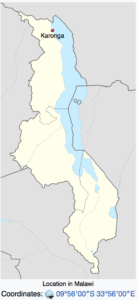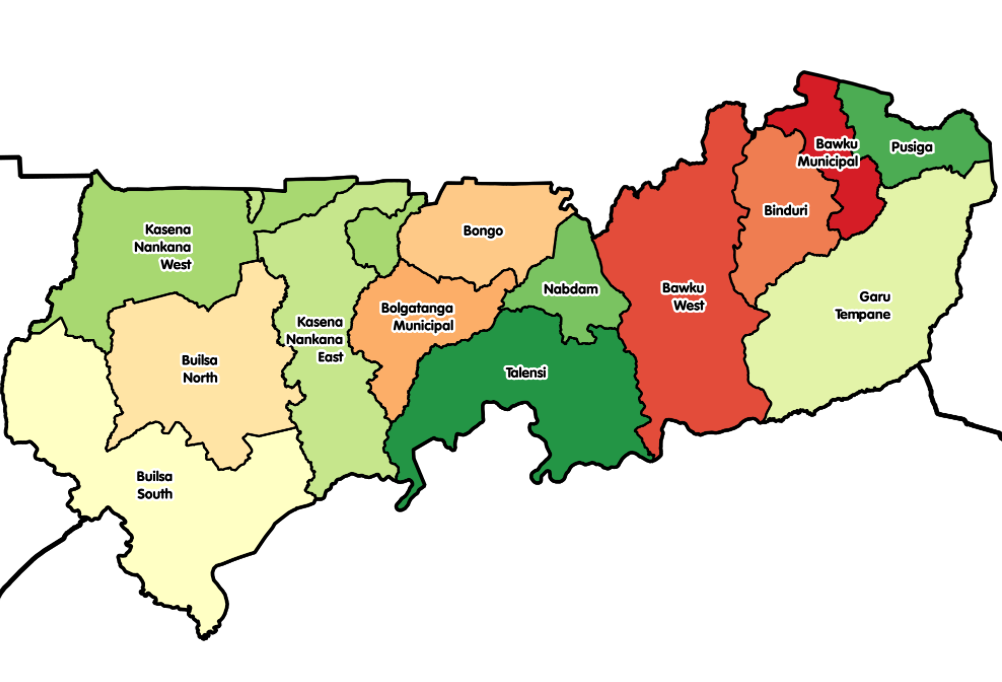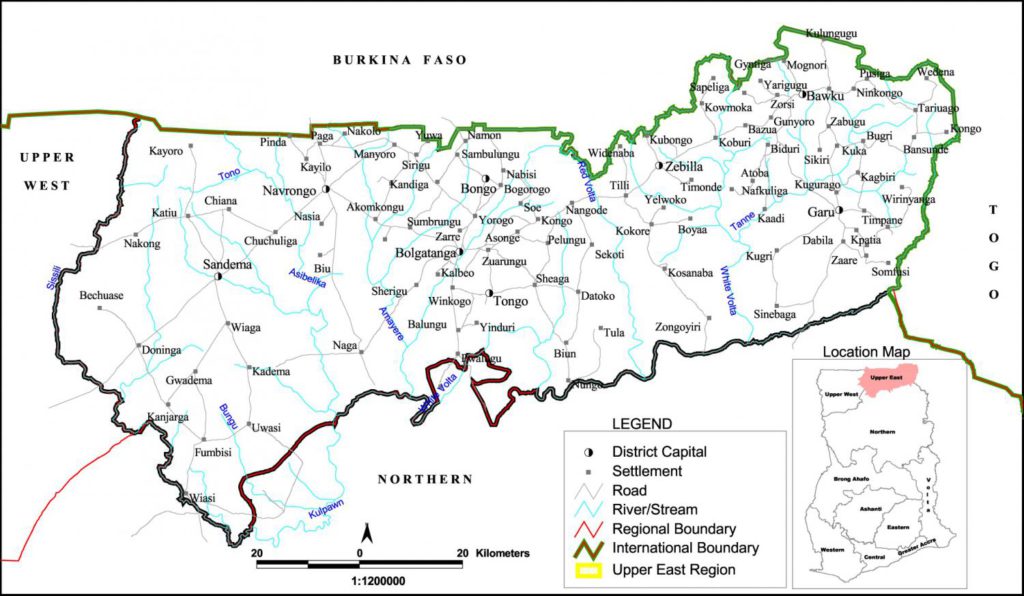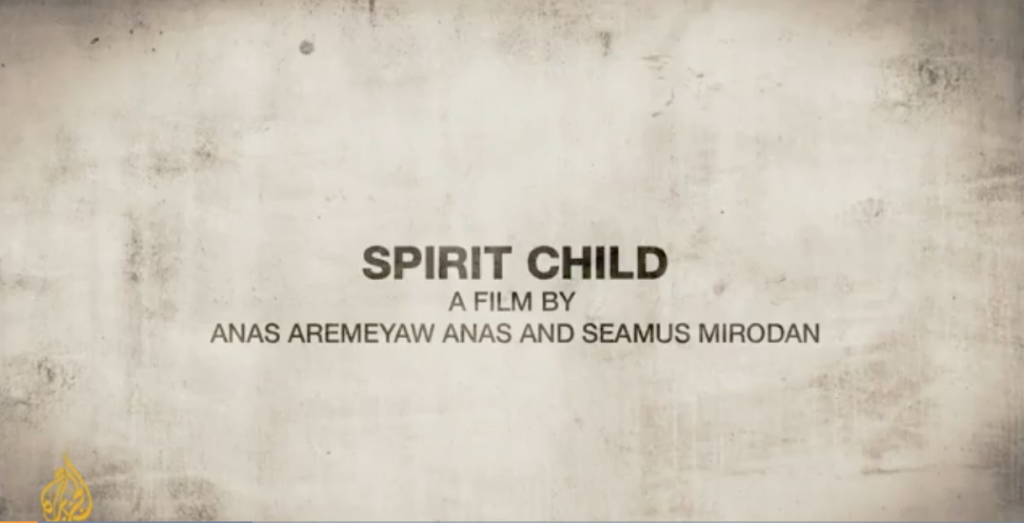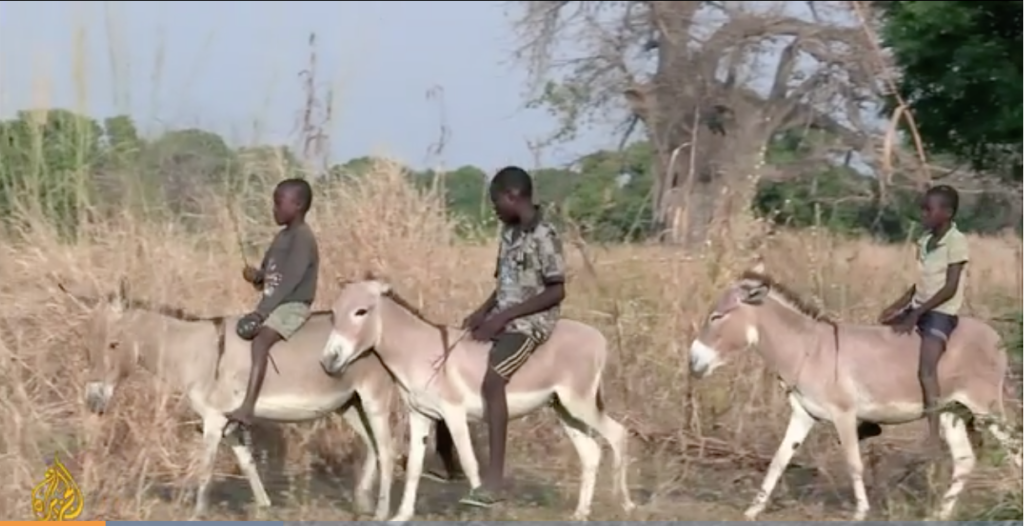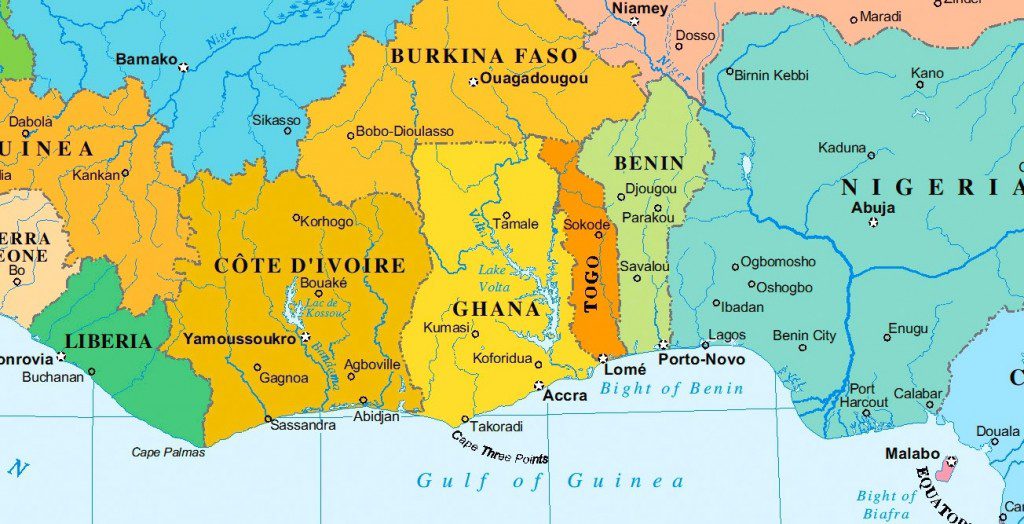Recently, Ghana was shocked by the Kasoa ritual murder case. It’s not common knowledge that ritual murders are no exception in Ghanaian society. Also belief in witchcraft is widespread in this West African country which nevertheless has a very positive reputation as one of Africa’s most advanced countries, rapidly developing.
Yesterday I posted a general article on sorcery and the belief in witchcraft and I announced a heartbreaking, breathtaking incident which occurred in Ghana last year.
The lynching of Akua Denteh, a 90-year old woman in the Savannah region, in central Ghana, who was accused of being a witch caused national-wide outrage. It happened at Kafaba near Salaga in the East Gonja Municipality of the Savannah region, on July 23, 2020. After a local priestess, Sherina Mohammed alias Alhajia Filina (40), had accused the nonagenarian of witchcraft, a mob attacked the old, frail woman. Two women slapped, kicked and caned her with a whip, the horror was filmed by by-standers who did not intervene to stop the insane and atrocious cruelty which led to the death of this mother of nine children. The horror-movie was widespread on social media, but I find the video too gruesome and repulsive to show here.
The lynching of Madam Akua Denteh was not a unique incident, however. On more occasions I have reported on the cruel treatment of children and adult people who are being accused of witchcraft. See my postings dated April 14, 2020, Ghana: women accused of witchcraft find refuge in outpost run by sisters, and November 30 of the same year, Ghana Pentecostals come to the defense of accused witches as well as ‘AfriKids: Ghana’s haven for ‘spirit’ children marked for murder‘ (June 23, 2018).
In 2018, an investigation by the famous journalist and film maker Anas Aremeyaw Anas resulted in worldwide attention for the plight of so-called ‘spirit children’. Anas investigated the murder of Ghanaian children who were accused to be possessed by evil spirits. See my June 4, 2018 posting Spirit Child: Ritual Killings in Ghana. It feels wry knowing that reportedly already in 2013 Ghanaians put a ban on the killing of ‘spirit children‘.
And now, in 2020, the cruel and inhumane treatment of people – mostly women and children but also men are occasionally targeted – accused of witchcraft has resulted in yet another innocent victim of superstition. Will it end here?
The police acted swiftly and apprehended the priestess as well as the culprits who tortured and murdered Akua Denteh. However, the recent Kasoa murder case shows that superstition has far from vanished from Ghanaian society. The war against superstition, belief in witchcraft and ritualistic killings is far from over.
(webmaster FVDK)
Lynching of 90-year-old Ghanaian woman suspected of witchcraft scars national conscience
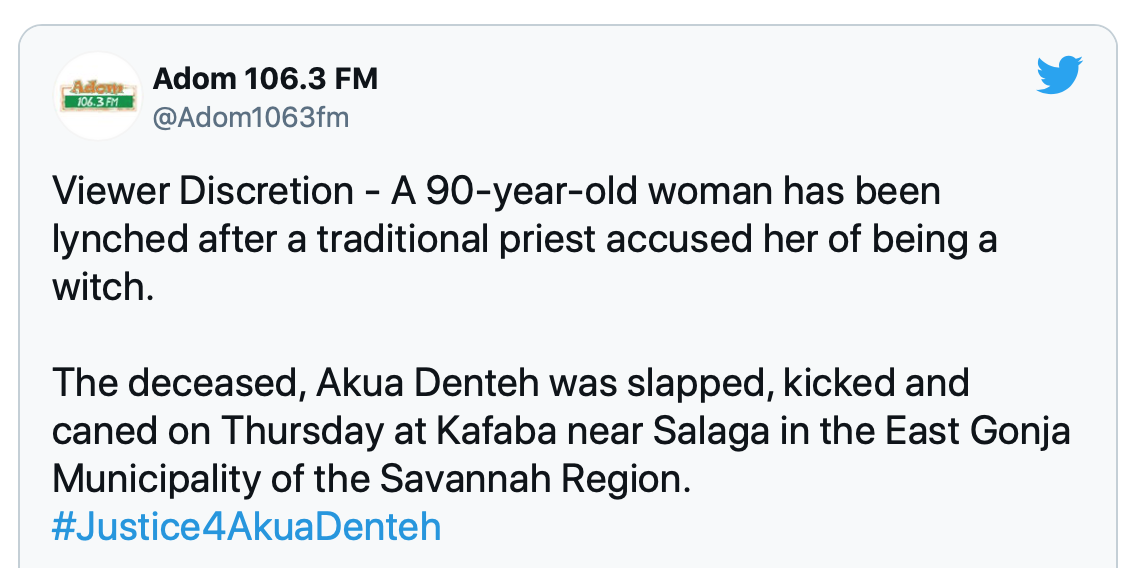
Published: July 28, 2020
By: Face2Face – Nii Ntreh | Associate Editor
A 90-year-old Ghanaian woman in the north of the country was lynched to death last week by a mob who had been convinced that frail and diminutive Akua Denteh was a witch.
According to local sources, Denteh was accused by a popular traditional priestess in the Savannah region of the country, who traced the misery and misfortune of a few people as well as the community to the nonagenarian. This followed a long-held suspicion by some youth in the community.
The ensuing mob justice after the priestess’ confirmation was as swift as it was merciless.
A viral video of the lynching shows a small crowd that had circled the helpless old woman as she sat in the dirt. In the middle of the circle, those who were perhaps more incensed with Denteh’s alleged witchery – two visibly irate women in particular – beat her up, one of them, with a whip.
The video is only forty-five seconds long and does not include footage of what has been reported as the commitment of more people to beat Denteh up. But since the video came to light and drew the response of the police, many of the onlookers as well as those seen assaulting the old woman, have reportedly fled into hiding.
Ghana‘s president, Nana Akufo-Addo, has called the incident a “tragic act” that has “disfigured” the country’s image. A former head of state Jerry Rawlings has also called for a quick resolution to a “cruel and barbaric lynching”.
Social media platforms too, Facebook and Twitter specifically, have been awash with statements from individuals and organizations condemning Denteh’s murder. But perhaps, the sentiments of civil society, however well-intentioned, are at best, anodynic and polite.
A 2015 Global Attitudes Survey by the Pew Research Center found that about 90% of Ghanaians described themselves as religious, belonging to the Christianity, Islam, variants of the Eastern religions or traditional African faiths. But the belief in witchcraft, not argued by the Pew survey, is very rife regardless of one’s faith.
The pervasiveness of belief in witchcraft in Ghana can be seen through the popularity of the biggest movies produced by the country’s hugely-successful Kumawood (Kumasi Hollywood) industry. Since the 1980s too, Ghana has witnessed the astronomic proliferation of evangelical churches that market themselves as “solution centers” to spiritual problems.
Some of these churches are referred to as prayer camps where people are supposed to be delivered of demonic possessions. Apart from churches, some animistic believers in northern Ghana, not far from where Denteh was murdered, have witch camps, where older women are held on accusations of witchcraft, sometimes until their death.
The most famous of these camps, the Gambaga witch camp, has been studied by social scientists across the world.
However, much in the fashion of the Comtean sociological perspective, many educated Ghanaians seem to think that belief in witchcraft and hardcore spirituality is in the nature of the uneducated poor.
With what is already known about Ghanaian society, the lynching of Denteh seems like the ugly manifestation of serious neglected underlying tensions.
Source: Lynching of 90-year-old Ghanaian woman suspected of witchcraft scars national conscience
Related article:
90-year-old woman accused of witchcraft lynched at Kafaba near Salaga
The police have mounted a search for one Tanko and his accomplices who allegedly masterminded the lynching of a 90-year-old woman at Kafaba near Salaga in the Savannah Region on the accusation that she was a witch.
The incident happened on Thursday, July 23, 2020 in the East Gonja Municipality.
The old woman whose body has since been deposited at the Tamale Teaching Hospital (TTH) mortuary has been identified as Akua Denteh.
The Savannah Regional Police Commander, Deputy Commissioner of Police (DCOP), Mr Enoch Adutwum Bediako told Graphic Online that some more police officers have been detailed to the area to effect the arrest of the suspects who subjected the victim to severe beatings which led to her death.
What happened?
DCOP Bediako told Graphic Online that at about 4pm on Thursday, July 23, 2020, Mahama Salami aged 60 years of Mempeasem, a suburb of Salaga reported to the police that he had received information at 11 am from his sister, Mahama Memuna that his mother, Akua Denteh aged 90 had been accused of being a witch.
This was because a certain fetish priest in the area had said so.
DCOP Bediako said based on that the old woman was subjected to severe beatings by Tanko and his accomplices until she became unconscious and died.
He said when the matter was reported to the Salaga Police they proceeded to the scene at Kafaba, which is about 21 kilometres from Salaga and saw the lifeless body of the victim.
He said an inspection conducted on the body of the victim revealed a cut on the forehead and bruises on the right arm.
After processing the scene as part of investigations, the body was sent to the TTH mortuary for preservation.
DCOP Bediako said the police are on the heels of those who perpetrated the act for the law to deal with them.
The issue of witchcraft allegations, especially against old women are widespread in the northern part of Ghana.
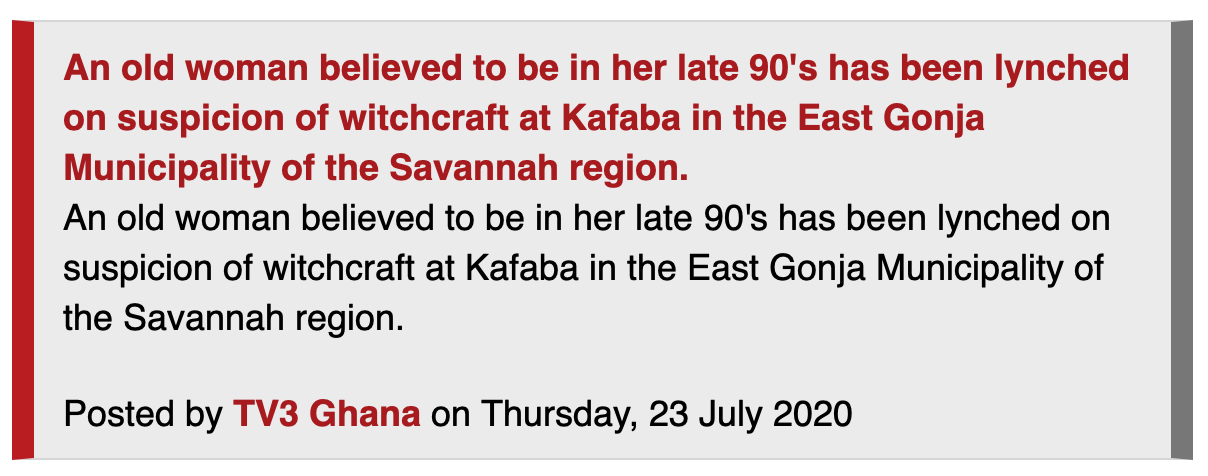
Source: 90-year-old woman accused of witchcraft lynched at Kafaba near Salaga
Related article: suspects grabbed
Kafaba ‘Witch’ Killer Grabbed After Trying To Escape To Yeji
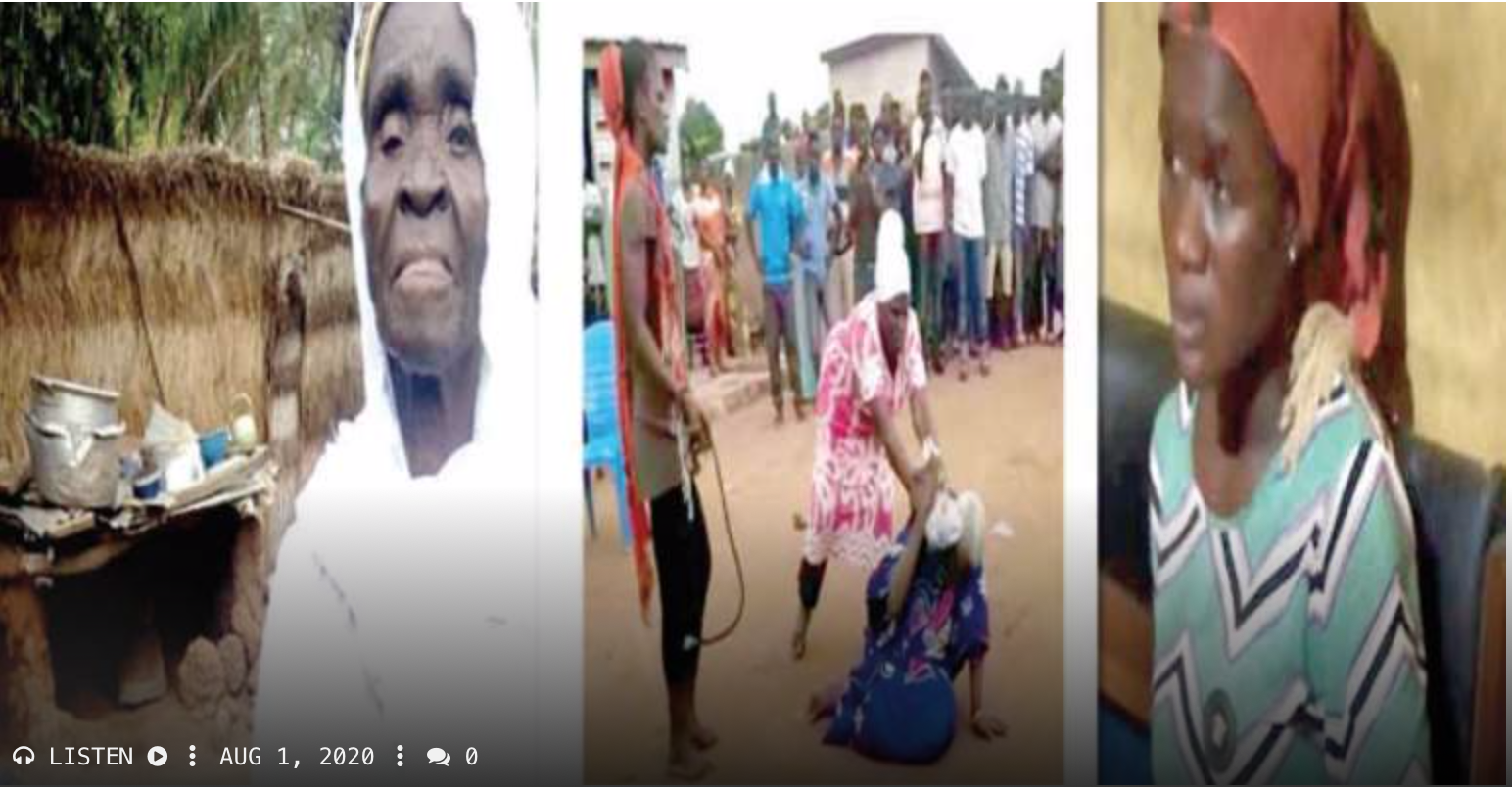
Published: August 1, 2020
By: Modern Ghana –
A key suspect in the lynching of Akua Denteh, a 90-year-old woman, over allegation of witchcraft at Kafaba in the Gonja East Municipality of the Savannah Region, has been grabbed by the police after she tried to escape from the area.
Latifah Bumaye, believed to be an associate of the ringleader, Hajia Filipina, was picked up at Kejewu Bator, a fishing community under the Abrumase Police within the Salaga Division at East Gonja, while going to Yeji.
According to police sources, they heard about the hideout of the suspect and dispatched detectives to Kejewu Bator where she was picked up and escorted back to the Salaga Divisional Command.
DAILY GUIDE understands that she is being processed to be sent to the Regional Police Command in Damongo for further action.
The suspect is believed to be one of the two ladies seen in the viral video lynching the 90-year-old woman because they claimed she was a witch.
She is believed to be the woman in the video menacingly whipping the old lady with a long whip which she brandished. Meanwhile, the chief suspect, Filipina, is yet to be apprehended.
More Suspects
Five people, who are believed to have participated in the lynching which has since sparked national outrage, have been remanded in police custody by a district court at Bole.
They pleaded not guilty and the court, presided over by Andrew Prince Cudjoe, remanded them until August 20.
The suspects – Haruna Aness, 34; Issaka Tanko, 35; Shaibu Murtala, 29; Sulemana Ali, 35; and Issaka Sachebu, 32, have been charged with conspiracy and murder.
The Chief of Kafaba, Seidu Yahaya, under whose jurisdiction the incident occurred, has also been granted police inquiry bail.
The police placed a GH¢2,000 reward for anybody that would help in the arrest of the suspects; and yesterday, a benevolent individual placed a GH¢5,000 reward for anybody who could assist the police to arrest Filipina.
Source: Kafaba ‘Witch’ Killer Grabbed After Trying To Escape To Yeji
Another article:
Kafaba: Bole District Court Remands Woman ‘Killer’
Published: August 3, 2020
By: Modern Ghana
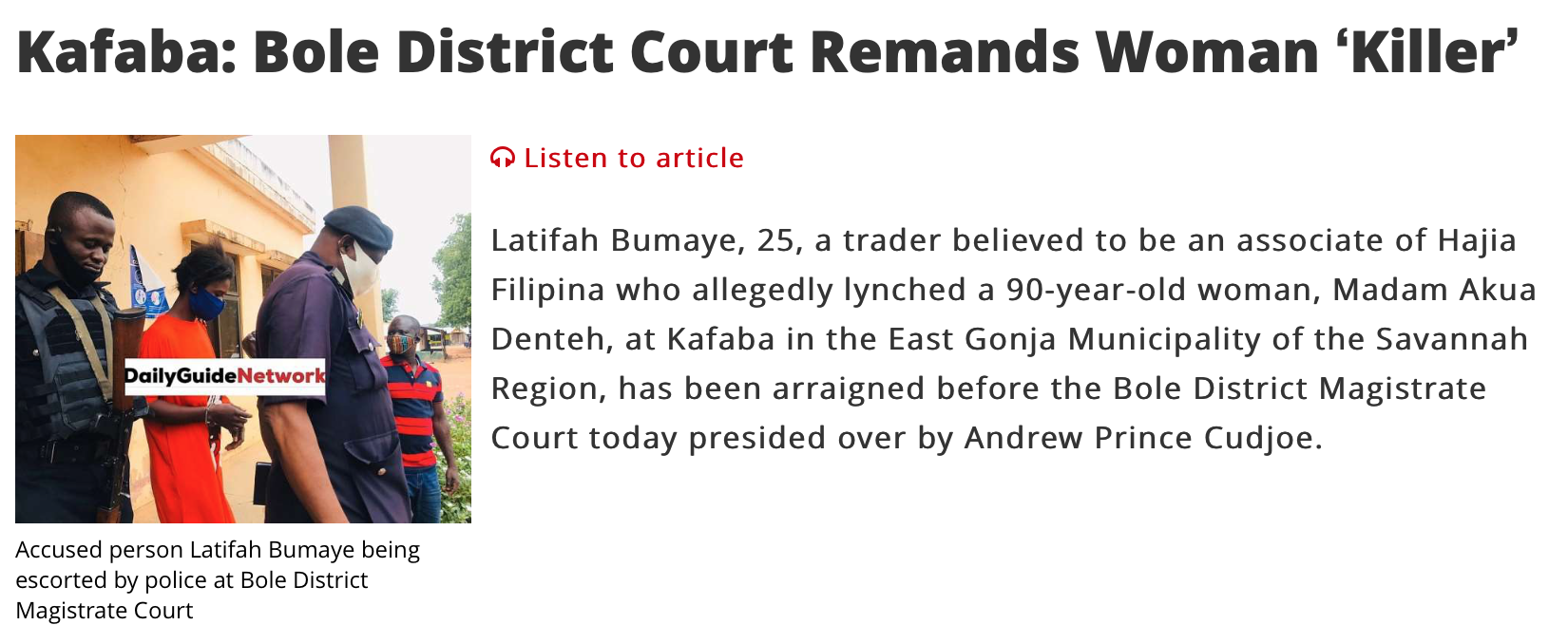
The accused person was provisionally charged with murder.
The case prosecutor, chief inspector Abdulai B. Awuni, pleaded with the court to remand the accused person for further investigation.
The judge granted the request of the police prosecutor and demanded the accused be remanded into police custody to reappear in court on August 20, 2020.
The charge was read and explained to the accused person but her plea was not taken.
More Suspects
Five people, who are believed to have participated in the lynching which has since sparked national outrage, have been remanded in police custody by a district court at Bole.
They pleaded not guilty and the court, presided over by Andrew Prince Cudjoe, remanded them until August 20.
The suspects – Haruna Aness, 34; Issaka Tanko, 35; Shaibu Murtala, 29; Sulemana Ali, 35; and Issaka Sachebu, 32, have been charged with conspiracy and murder.
The Chief of Kafaba, Seidu Yahaya, under whose jurisdiction the incident occurred, has also been granted police inquiry bail.
The police placed a GH¢2,000 reward for anybody that would help in the arrest of the suspects; and yesterday, a benevolent individual placed a GH¢5,000 reward for anybody who could assist the police to arrest Filipina.
Madam Akua Denteh was lynched at Kafaba in the East Gonja Municipality in the Savannah Region.
The woman was openly beaten to death by Hajia Filipina,the soothsayer with support from a mob in the community.
The main suspect, Hajia Filipina, as at the time of filing this report was still on the run.
Source: Kafaba: Bole District Court Remands Woman ‘Killer’
More articles:
Kafaba Killing: Woman ‘Killer’ To Face Court Today

Published: August 3, 2020
By: Modern Ghana
One of the key suspects in the lynching of 90-year-old Akua Denteh at Kafaba will be arraigned today, August 3.
Latifah Bumaye was arrested last week at Kejewu Bator, a fishing community along the Volta lake.
She was seen in a viral video continuously hitting the deceased with an object.
The deceased, Akua Denteh a fortnight ago was tortured after she was accused of being a witch.
The Savannah Regional Police earlier arrested five persons who are also linked to the incident.
They have been charged with conspiracy to commit murder and have been remanded in police custody to reappear before the court on August 20.
Speaking to Citi News, Savannah Regional Police Commander, DCOP Enoch Adutwum Bediako said investigations are still ongoing.
“She was arrested on Monday at Kejewu, a small community along the Volta lake. All she keeps saying is that she doesn’t know what was happening to her. Our investigations are still ongoing but we will put her before court today to seek remand as investigations continue. She has not been able to tell us where the priestess (another suspect) is.”
Five suspects charged with conspiracy to commit murder
Earlier, five suspects arrested by the Police in connection with the lynching of Akua Denteh have been formally charged with conspiracy to commit murder.
They are however currently on remand in police custody after making their first appearance in court on Thursday, July 30.
Kafaba chief granted bail
Meanwhile, the Kafaba chief, Zackaria Yahaya who was earlier arrested has been granted bail.
According to the police, the five other suspects in their statements indicated that the chief did not play any role in the development as he even asked them to send the priestess away when they went to introduce her to him before the lynching incident.
“The youth did not agree with the chief and went on to do what they did and this unfortunate thing happened… All the five said the chief didn’t agree with what they were doing and therefore he was not part of what they were doing. Based on that, we have to grant the chief bail pending further investigations…He spent the night there because we got the suspects the following day,” DCOP Bediako said.
Source: Kafaba Killing: Woman ‘Killer’ To Face Court Today
Another:
Kafaba Lynching: I Was Possessed – Woman ‘Killer’ Reveals In Court
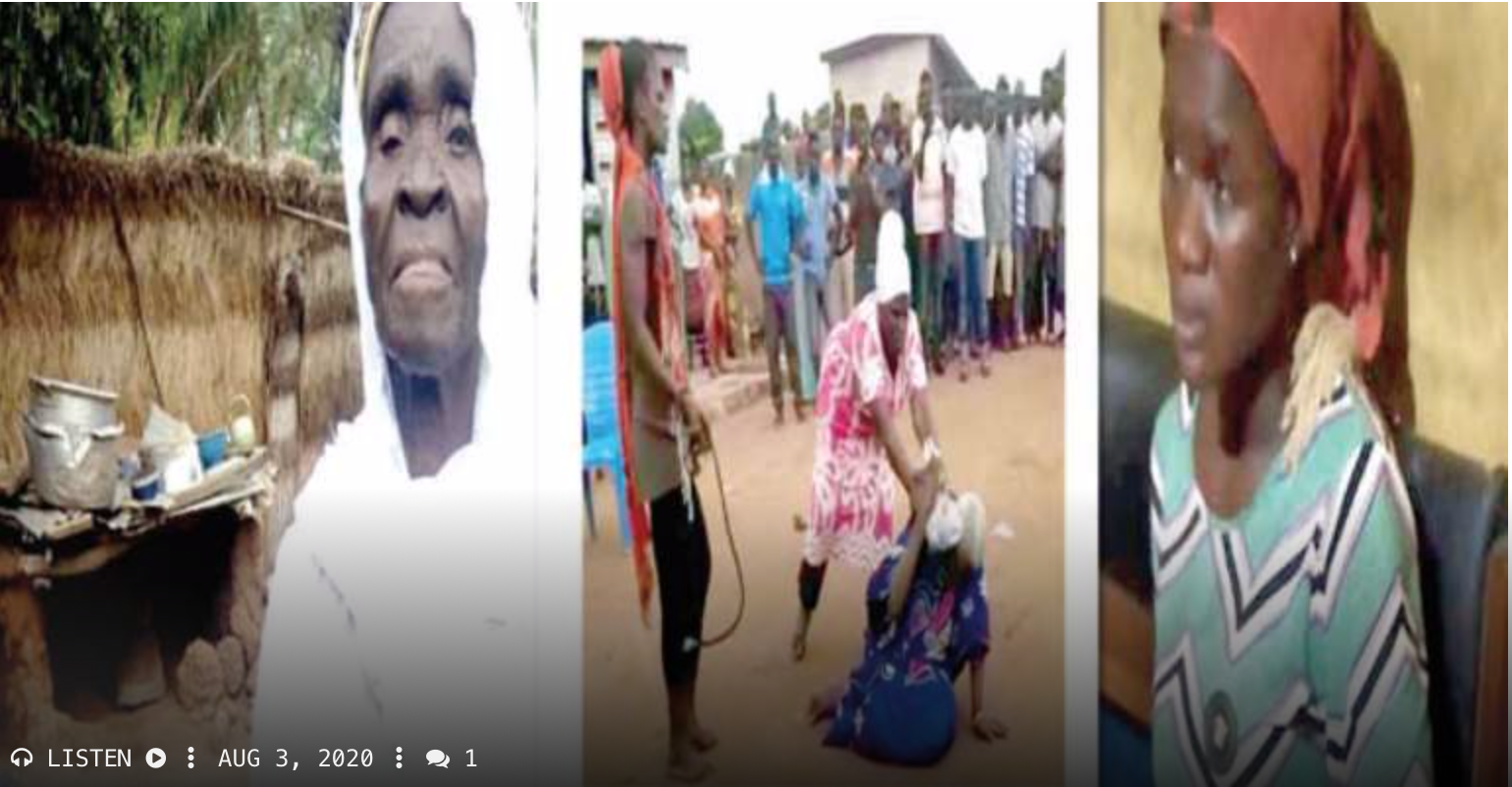
Published: August 3, 2020
By: Modern Ghana
A key suspect in the lynching of Akua Denteh, a 90-year-old woman at Kafaba in the East Gonja Municipality of the Savannah Region, over allegation of witchcraft, has spoken for the first time since her arrest last Friday.
Latifa Bumaye, 33, claimed she was ‘possessed’ and did not realize she was participating in the lynching of Akua Denteh.
She claimed she went to wash her clothes at the river bank with her sister when the spirit entered her, adding “I saw the incident on television and I wondered if I was really the one who tortured her like that.”
Besides, she claimed that the woman who had passed on is her grandmother, a position rejected by the family of Akua Denteh.
Latifah believed to be an associate of the ringleader, Hajia Filipina, was picked up at Kejewu Bator, a fishing community under Abrumase Police Station within the Salaga Division in the East Gonja, whilst going to Yeji on Friday.
She is believed to be the woman in the video menacingly whipping the old lady with a long whip. Meanwhile, the chief suspect, Hajia Filipina, is yet to be apprehended.
According to sources, Latifa is expected to be sent to the Regional Police Command in Damongo to be processed for court on Monday.
More Suspects
Five people, who are believed to have participated in the lynching which has since sparked national outrage, have been remanded in police custody by a district court at Bole.
They pleaded not guilty and the court, presided over by Andrew Prince Cudjoe, remanded them until August 20.
The suspects – Haruna Aness, 34; Issaka Tanko, 35; Shaibu Murtala, 29; Sulemana Ali, 35; and Issaka Sachebu, 32, – have been charged with conspiracy and murder.
The Chief of Kafaba, Seidu Yahaya, under whose jurisdiction the incident occurred, had also been granted police inquiry bail.
The police placed a GH¢2,000 reward for anybody that would help in the arrest of the suspects and also a benevolent individual placed a GH¢5,000 reward for anybody who could assist the police to arrest Filipina.
According to police sources, they heard about the hideout of the suspect and dispatched detectives to Kejewu Bator where she was picked up and escorted back to the Salaga Divisional Command.
DAILY GUIDE understands that she is being processed to be sent to the Regional Police Command in Damongo for further action.
Source: Kafaba Lynching: I Was Possessed – Woman ‘Killer’ Reveals In Court
To conclude:
Police arrest priestess in Kafaba lynching of 90-year-old

Published: August 4, 2020
By: Ghana News Agency (GNA)
Accra, Aug. 4, GNA – The Ghana Police Tuesday said they have arrested the fetish priestess who allegedly accused Madam Akua Denteh of Kafaba, in the Savannah Region, of witchcraft, resulting in the lynching of the 90-year-old.
Superintendent Sheilla Kessie Abayie-Buckman, Director, Police Public Affairs Directorate, said Sherina Mohammed alias Alhajia Filina, 40, was arrested on Monday, August 3, 2020, at her hide-out at Yeji.
Superintendent Abayie-Buckman on the Ghana Police Facebook platform said, the suspect was, consequently, in Police custody assisting with investigations.
Hajia Filina is said to be among some other persons identified as Sanjo, Teacher Aliu, Bumaye, Ashley and Manafo, who allegedly beat the nonagenarian on Thursday, July 23, resulting in her unconsciousness and death later.
They have already arrested five more persons who allegedly admitted to having invited the priestess to Kafaba where the incident occurred.
They are Haruna Aness – 34, Issifa Tanko- 35, Shaibu Muntala – 29, Sulemana Ali -35 and Issifa Zakyibo -32.
Their action has attracted nationwide condemnation and calls for swift justice and punishment of the perpetrators.
The police in the Savannah Region initially arrested the chief of Kafaba, Zackaria Yahaya, for his alleged role in the incident.
They have been arrested to face prosecution.
President Nana Addo Dankwa Akufo-Addo, who described the action as “barbaric” also called for action and justice to be served.
A few days after the incident, the Inspector General of Police (IGP), Mr James Oppong-Boanuh, dispatched homicide experts to the Savannah Region to hunt for the murderers.
The IGP also placed a GH¢ 2,000.00 bounty on their heads, adding that any person with credible information should either contact the Savannah Police or call 0275000156.
Sanjo was said to have hosted Hajia Filina, the priestess who declared the victim, a witch.
Source: Police arrest priestess in Kafaba lynching of 90-year-old
And:
High priestess involved in murder of 90-year-old woman to appear in court on August 5

Published: August 5, 2020 (Last Updated on August 9, 2020)
By: MyGH.Online
The Savannah Regional police command says the Priestess (Soothsayer), in the Kafaba murder case, will appear in court on Wednesday, August 5, 2020.
This was after Sherina Mohammed alias Alhajia, aged 40, was arrested at her hideout at Yeji in the Bono East region by police in Salaga.
Her arrest brings the number of suspects in police custody to seven with the exception of the Kafaba chief, Zackaria Yahaya who is currently on bail.
JoyNews’ Isaac Nonya who has been following the incident reports that the police had earlier sent the suspect to Salaga to be interrogated before being brought to Damongo.
According to sources, the alleged priestess had also admitted being the one in the video which went viral.
On July 23, 90-year-old, Akua Denteh was seen being slapped, kicked and caned after the traditional priestess accused her of being a witch.
The severe beating the woman was subjected to by her accuser and two other women resulted in her death.
After the video went viral, there was massive outrage with many demanding the immediate arrest and prosecution of all the perpetrators.
From the President, Nana Akufo-Addo, to various civil society groups, the security services have been urged to fish out the culprits who went into hiding after the act.
On Monday, the first key suspect in the lynching was arrested and remanded by the Bole Magistrate Court.
Latifa Bumaye, 25, was smoked out of her hideout at Kejewu Botor a suburb of the East Gonja Municipality, following continuous surveillance by the Homicide Unit of the Ghana Police Service.
Source: High priestess involved in murder of 90-year-old woman to appear in court on August 5
Last but not least, two related articles:
Kafaba killing: Son Shares Unfulfilled Wish Of Murdered 90-Year-Old Woman
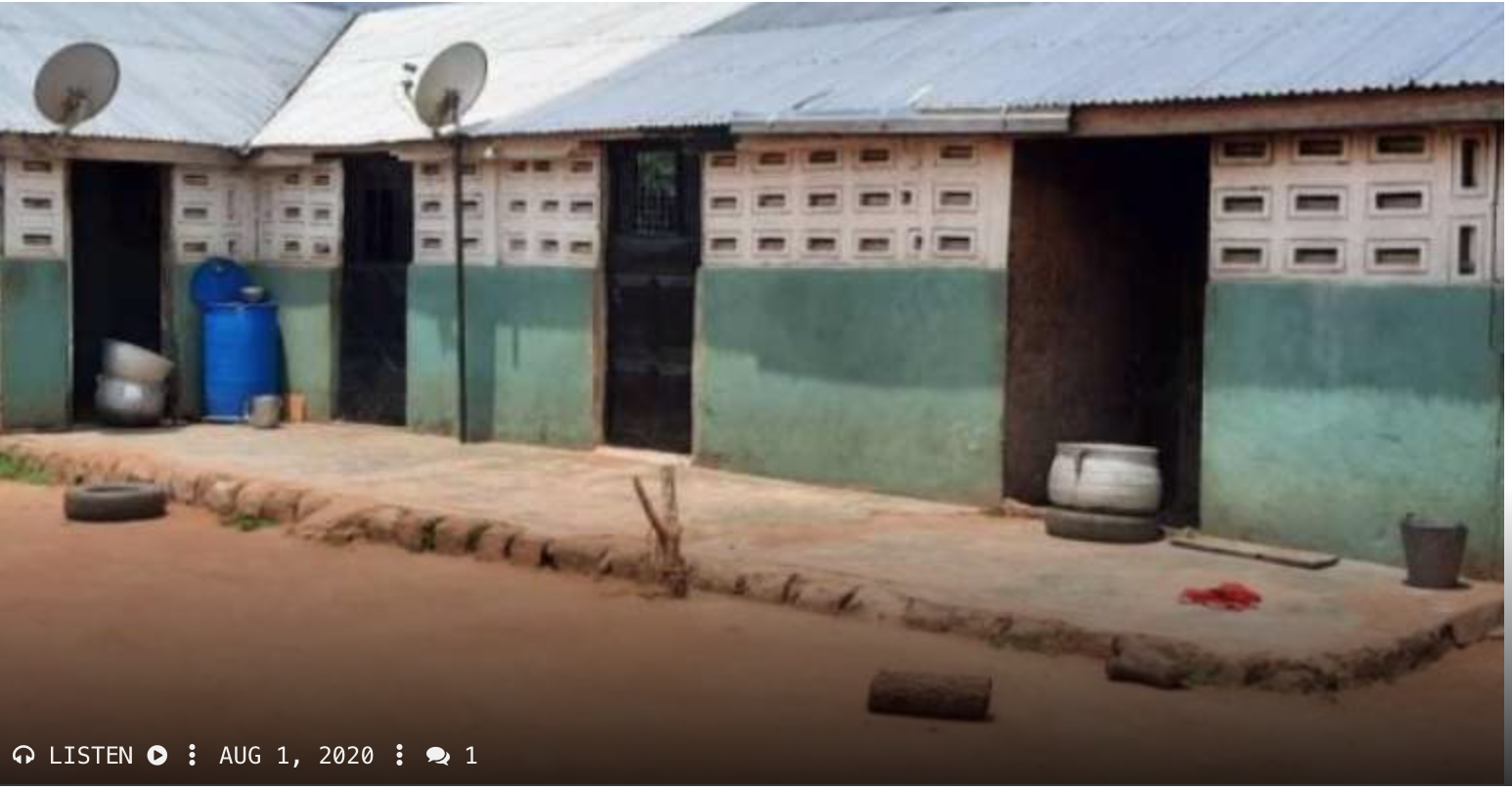
Published: August 1, 2020
By: Modern Ghana
The last son of the 90 year-old woman who was beaten to death at Kafaba has shared her last unfulfilled wish saying “My mother’s last wish was to see my children before she will pass away.”
Mr Mahama Saaka, who is 36-years-old and teacher at Salaga T.I Ahmadiyya Senior High School, who recounted this, said he was yet to have a child and unfortunately his mother had to die this way without seeing his children.
He recounted this when the Ghana News Agency (GNA) visited the family of the murdered old woman at Salaga in the East Gonja Municipality of the Savannah Region to gauge their mood after the sad incident.
Madam Akua Mariama Denteh, 90 years-old, was on Thursday, July 23, beaten to death at Kafaba by some residents and a spiritualist, who accused her of witchcraft and behind certain strange happenings in the area including; limiting the progress of the town.
Madam Denteh had nine children, and three died leaving two males and four females, a number of them as teachers and 21 grandchildren.
The spiritualist was brought to the town by some youth of the area to fish out alleged witches in the area, working against the progress of the town.
The spiritualist mentioned Madam Denteh as a witch, which she denied but her denial was not accepted and was subjected to beatings.
The incident was captured on video, and had since gone viral on social media.
The deceased has since been buried.
So far, the Police arrested Yenufunu Yahaya Seidu (V), a Chief at Kafaba, who had been granted police enquiry bail, and six others in connection with the incident.
The incident has attracted condemnation from civil society organisations, politicians, gender and human rights activists across the country.
GNA gathered that, when Madam Denteh was beaten and succumbed to the torture, the spiritualist identified 17 other women in the area as being witches and some of them were also subjected to beatings whilst others, who were connected to powerful people in the area, were spared from beatings.
Mr Saaka said “It had been my greatest desire to fulfil my mother’s wish but I’m shattered now, I don’t know what to do.”
He told the GNA that “Since the incident happened and I took my Mum to the morgue, I have not been myself, I’m sick internally, I can’t even cry. She wanted to see my children before she will pass. That is the promise she gave to me, but the unfortunate incident has crushed everything.”
He said “I don’t believe that my own community; they will do this thing. I’m very, very surprised because I grew up there. We are very sad. We don’t know what to do.”
He called for justice to be served “So that my Mum will be used as an example to protect all other elderly women.”
Mr Mahama Sallam, 60 year-old third child and surviving first son of the deceased, said what happened was unacceptable, attributing it to ignorance saying “We leave everything in the hands of God.”
GNA also visited the spot, where the old woman was beaten at Kafaba, and it was a compound of a house, whose owner had since fled the town.
The road from Salaga to Kafaba is in a deplorable state and it takes about an hour and a half to reach Kafaba from Salaga using a four-wheeled vehicle.
There is no Police Post at Kafaba, which presupposes that unless a good Samaritan in the town intervenes, any unlawful act could be meted out to any citizen in the area.
Yenufunu Yahaya Seidu (V), a Chief at Kafaba, who was arrested and granted bail in connection with the incident, told the GNA at Kafaba that some youth of the area informed him of their decision to invite the spiritualist to fish out witches in the area to ensure the progress of the town.
He said lawless acts in the area could be prevented, if there was a Police Station in the area and appealed for one in the area to ensure law and order.
Source: Kafaba killing: Son Shares Unfulfilled Wish Of Murdered 90-Year-Old Woman
And hail to the journalist who first reported on the lynching of 90-year old Akua Denteh:
Kafaba Killing Reportage Has Boosted My Popularity – TV3 Journalist
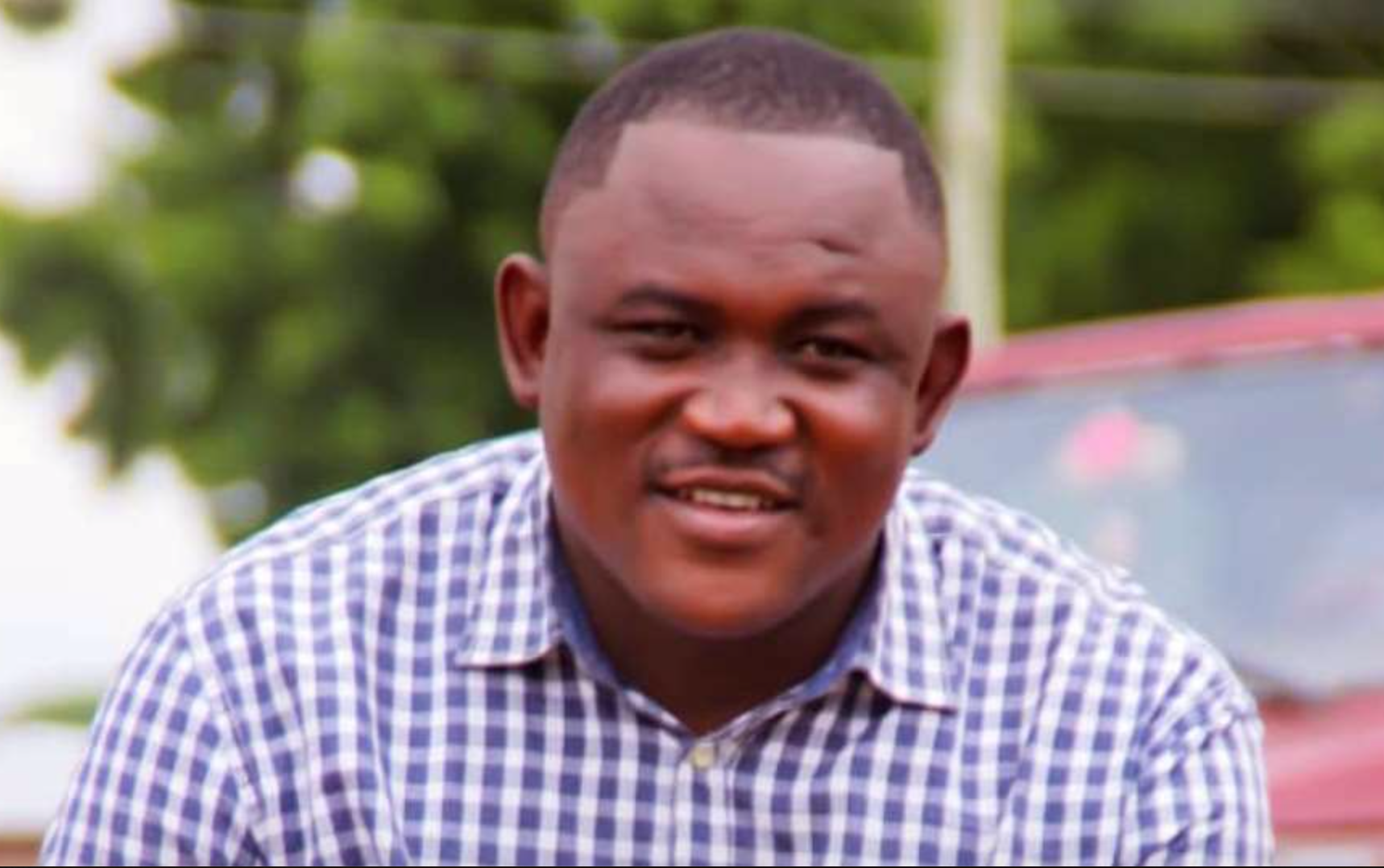
Published: August 3, 2020
By: Modern Ghana
TV3’s Savannah Regional correspondent Christopher Mensah Amoako has opened up on how he became the only journalist in the country to have first reported on the gruesome Kafaba killing, indicating the reportage has soared his popularity in the region.
Speaking on ‘Talk To Solomon’ (a YouTube based talk show) hosted by journalist and writer Solomon Mensah, Mr. Amoako said: “On that fateful Thursday, July 23, 2020, I was on my way to East Gonja [in the Savannah Region] when I had a video sent to me via WhatsApp. When I downloaded it, I heard them speak both Gonja and Twi so I realised the tape could not be an imported one from any other African country.”
Christopher Amoako said, he did further checks to ascertain the authenticity of the video and after rigorous background checks confirmed it was not fake.
“I quickly called the one who sent me the video not to share with anyone. Then, after about two hours, I also had a call from the son of the deceased telling me about the incident,” he noted.
The Savannah Regional correspondent for the Media General group revealed that he first “harboured fear in breaking the news. But now, that fear has long gone. Today, everywhere I pass, I get people pointing fingers at me that, ‘that’s the journalist who first broke the news to the nation’”.
Christopher Amoako said he together with the people of the Savannah Region and the nation as a whole look forward to a swift justice served by the law courts on the murder.
A 90-year old woman Akua Denteh was lynched on July 23 by a section of the Kafaba community after a soothsayer pronounced her a witch.
The Savannah Regional Police Command has since apprehended some suspects including 32-year old Latifa Bumaye believed to have played a key role in the lynching.
Find below Christopher’s full interview:

